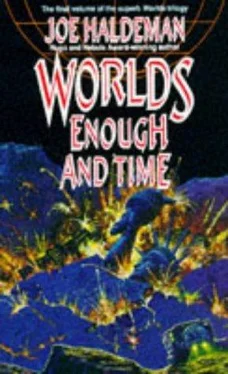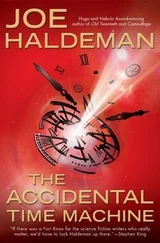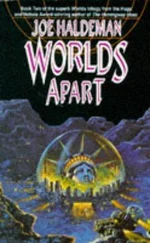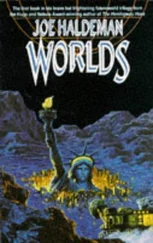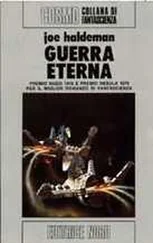I’ve wondered about that name. He was Swiss, and that’s all we know, but Burkat Shudi doesn’t sound European. It sounds Moslem. I picture him as a dark old man with long flowing white hair, working with endless patience on these woods brought from oriental forests on the backs of slaves, on sailing ships, finally on a creaking horse-drawn wagon down a muddy London street. To tell him that his handiwork would wind up here would be more fantastic than saying it would wind up in the Garden of Irem, less believable to him. I don’t think they knew, in 1728, how far away the stars actually are.
(I asked Prime and got a HOLD FOR OPEN DATA CHANNEL message—that’s a first.) No. Prime says 1837.
Chul’ Hermosa survived the thaw, and will be coming down with the harpsichord. He loves to teach; that will be a kind of closure, too.
We’re up on stilts both for food protection and to keep pests away. The crawlies, which is what they call these seven-legged ones the size of your little fingernail, get everywhere and they bite, leaving an itchy red knot that lasts half a day. They’re inquisitive and totally unafraid of humans, so far, but they do have an aversion to water. So each of our four supporting poles is equipped with a metal collar that holds several centimeters of water, and three children share the job of making sure they don’t go dry. Then so long as we remember not to leave the ladder down, we won’t have the things sneaking into bed with us.
It rained most of last night and it was delicious, sitting on the balcony with the raindrops drumming on the roof, distant lightning and thunder over the lake. The smell of clean water and crackling ozone. I took out the harp and taught Charlee the words to “House of the Rising Sun” and “Nine Hundred Miles.” I had to explain railroads to her.
Of course she’d never seen rain before. It frightened her at first, the suddenness and force of the storm, but she did learn to enjoy it. What frightened me was seeing one of those floating spiders, frozen in the strobe of a lightning flash, skimming along in the wind down at the water’s edge. Charlee was looking the other way and so I didn’t say anything about it, but I was glad for the weight of the knife on my belt.
PRIME
The first couple of years after O’Hara arrived on Epsilon constituted a time of exploration rather than colonization. The towns Hilltop and Lakeside grew slowly, since most of the Engineer Pioneers were off on various foreign adventures. The primaries who were left behind, and most of the secondaries, were less enthusiastic about backbreaking labor than those indefatigable youngsters had been.
The slow pattern of growth, in both towns, reflected the kind of design conservatism you would expect from people who had lived for generations inside circumscribed space-settlement and starship environments. The dwellings were close together and uniform in design, if individual in decoration; streets were no broader than they had to be; there were elaborate recycling systems, including a composting toilet for each pair of dwellings. (The idea of actually letting water escape down the drain was wildly extravagant to them; letting it carry away valuable sewage would be literally unthinkable.)
The unwisdom of building so close together was exposed by a lightning bolt that set a house on fire. The reeds that formed the roof and walls weren’t especially flammable but they could burn, and by the time the fire was put out, by a combination of mobile pump and fortuitous downpour, the struck building had burned almost to the support timbers and the two adjacent ones were half ruined. Two people died, either from electrocution or immolation; the other three residents had been able to jump to safety from the balcony. By the time a neighbor’s ladder could be worked into place underneath, the inside was a red inferno.
There was a tall lightning rod a couple of hundred meters away, but the bolt had apparently bounced off it, according to the only eyewitness, though he said it could have been a trick of perspective. Should the rods be taller, thicker? Should there be more of them? The only information they had to go on was a single diagram from Key West, with two paragraphs of text.
The overall fire danger was less ambiguous. If that small gullywasher hadn’t poured tons of water on the burning house, there might have been a chain reaction, destroying all of the houses on the lake side of Lake Road, or even the entire town. They had to spread out.
Leaving the burned-out ruin as a memorial and goad, they proceeded to disassemble every other house, reassembling them on both sides of town with a spacing of thirty meters between sites. The end result was unsettling, esthetically wrong to a society of agoraphobes, but they would learn to live with it. The three exceptions to agoraphobia, hermits who had erected shacks well outside the town’s perimeter, had to pull up stakes again. And their number quadrupled, nine more people willing to haul food and water for the exotic luxury of not having any neighbors.
The next week, on the same night, two of those hermits were attacked by a floating spider, or by two different spiders. Both men passed out, from anoxia or sheer panic. One staggered into town before dawn and woke up Doc Bishop; the other had crawled back to the safety of his lean-to until light. Neither one of them suffered any permanent physical injury. Both of them had the same experience as Kisti Seven, with the important exception of not having been able to get to their knives. The thing gnawed on their hair, leaving a little bloody spot, and apparently rejected them as food, fortunately releasing them before they asphyxiated.
The hermit population was suddenly reduced to three again—one of them, surprisingly, one of the beast’s vietims. “They obviously don’t have any taste for me,” he said, and moved his lean-to farther out. People sometimes saw him at first light, though, standing in a field bareheaded, with a knife in each hand.
The other victim, Mark Ollen, had more subtle but more serious psychological problems. He was one of the scientists in die primary group, an agronomist. For some weeks he was almost useless at work, unable to concentrate, dragging into the lab and falling asleep over his samples or his console. Every night he would wake up repeatedly with the same graphic unsettling nightmare: the creature drinking his brains. Doc Bishop gave him pills, but the dream was stronger than them. One night he took all of the remaining pills at once, left a short note, and swam out into the lake. The top half of his body washed ashore in the next tide.
The remains were frozen and sent to ’Home, where things were better set up for autopsy. The surgeons there found nothing wrong with Ollen’s brain itself. But there was one detail that Doc Bishop had missed: a hole about a third of a millimeter in diameter had been drilled through his scalp and skull, and there was a healed spot in the durum directly underneath.
Don’t jump to conclusions, they said. A man who was sick enough to eat a handful of tranquilizers and see how far he could swim might well have done the damage himself. An animal feeding wouldn’t have had any reason to be so delicate about it; besides, the spiders’ claws weren’t fine enough or strong enough to do the job.
They sent the other victim up to ’Home and, under the scab on his scalp, the surgeons found a similar hole. He agreed to stay there for observation. For the rest of his life, if need be. They also examined Kisti Seven, but evidently she had gotten rid of the thing before it had started drilling.
Nobody ventured outside at night without head protection and weapons; in fact most people spent the night at home or wherever they happened to be stuck when the sun went down. Warnings went out to all of the exploration teams.
Читать дальше
